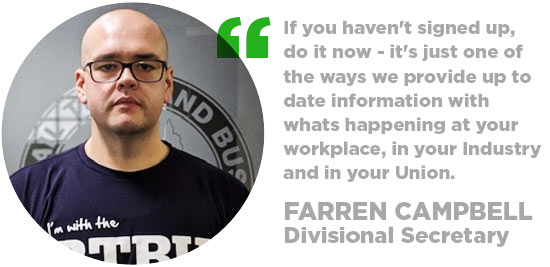Loco Delegates Conference: International Speakers
Last week’s loco delegates conference presented a range of new ideas from our overseas rail union mates.
The General Secretary of the Japan Confederation of Railway Workers’ Unions (JRU), Mr Akinori Yanagi, highlighted some important achievements the union had made.
In particular, he focused on how young members of the union understand humanity and the importance of fighting barriers together. Using member donations, the JRU have been building schools and sending members on trips with disabled children.
Wayne Butson, General Secretary of the Rail and Maritime Transport Union (RTMU) in New Zealand, explained how unions were the only regulating authority for rail workers in New Zealand. Rail workers were exempt from national safety laws and instead, employers were put in charge of employee safety. As if they could be trusted!
Of course, the RTMU knew that to employers, the bottom line came before employees, and they gave them one hell of a fight. However, though the RTMU has had wins for rail worker safety professionally, they are still finding it difficult to guarantee that safety with privatisation threatening everything. Sound familiar?
British speakers had much the same to say. The Associated Society of Locomotive Engineers and Firemen (ASLEF) has been fighting privatisation and taking a stand for what they believe in. Often, governments justify privatisation by saying that more money is needed for schools, hospitals and social work. However, Mick Whelan, ASLEF General Secretary, made the point that the money they save from privatisation never goes to these causes.
By trying to make trains more cost-efficient, the British government has only made blunders with trains where drivers were unable to even see out of the windscreen. If only the NSW Government had learned from them. With deregulation, the government only pays for the profitable services, and 19 million bus journeys were lost in the UK last year.
It’s key to have international solidarity with all our fellow unions. We understand the importance of the fight for worker rights. If we don’t fight for our rights, who will?




